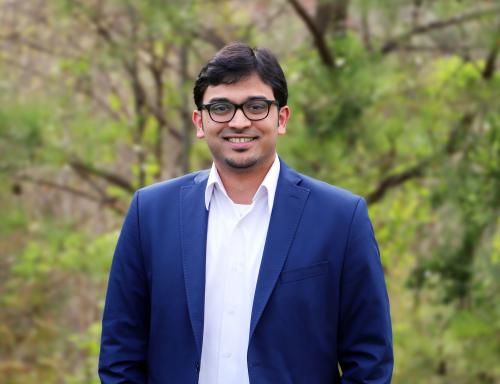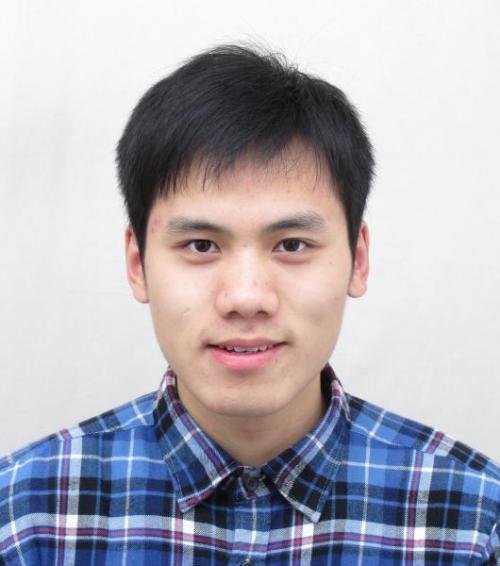
Blog
Alumni Profiles Series: Jainil Shah

Dr. Jainil Shah received his Ph.D. in Biomedical Engineering in 2015. His thesis work focused on a three-dimensional breast imaging system wherein he developed a next-generation SPECT-computing tomography (CT) system as a diagnostic tool. After graduation, he joined CivaTech Oncology, a local medical device company providing innovative brachytherapy (resorbable radioactive implants) products to treat cancer. He now serves as the Lead Scientist at the company, in charge of R&D and engineering as well as training clinical physicists at new sites.
HOW DID YOU DECIDE TO PURSUE YOUR CURRENT CAREER PATH?
I have always wanted to work in industry for two main reasons. First, I like the pace in industry, where I can see my research being translated quickly into tangible products. I am also interested in business operations in general. When I was at Duke, I took several business and management courses, volunteered at many networking panels, and served as President of the Advanced Professional Degree (APD) Consulting Club for two years. When I finished my Ph.D., I received several offers in both academia and industry, so I decided to pursue career opportunities in industry. I accepted the position at CivaTech for its potential in revolutionizing brachytherapy and advancing cancer treatments. Since CivaTech is a small company, it provides me with more freedom to conduct my research as well as more opportunities to engage with the business side of the company.
WHAT IS A TYPICAL DAY LIKE AS THE LEAD SCIENTIST AT CIVATECH?
I have three major roles under my job description. The research and development (R&D) part takes up roughly 60% of my time; this involves optimizing our existing products and developing new products with my team. In addition to R&D, I also oversee the optimization of manufacturing processes and work with my team of engineers to make sure that our design is produced correctly and that our products are safe for clinical use. I also help with training medical physicists on the first use of our products and assisting them with starting a product-specific program at their clinics. This part is crucial because I need to establish good lines of communication with our clinical collaborators, so that they are well-informed about our products and I can get first-hand feedback from their practices. Additionally, because we are a small company, I am also heavily involved in recruitment, procurement, and some marketing, which are not commonly associated with lead scientist positions. The “Science + Business” model really works out well for me. Plus, it is rewarding to see that what I’m doing daily has a direct impact on cancer patients’ lives, which is why I entered this field in the first place.
HOW HAVE YOUR PROFESSIONAL RESPONSIBILITIES AND GOALS EVOLVED SINCE YOU BEGAN YOUR CAREER?
I was entrusted with great freedom to prove myself when I first joined CivaTech. I was promoted to my current position as Lead Scientist within five months, which was a great validation of my work. Honestly, it made me a bit nervous to transition so quickly from being a graduate student to being a team leader in research-based industry. I definitely had the sometimes challenging opportunity to learn on the job. I made sure to treat my team respectfully while setting goals and expectations clearly in advance. Now I’m in charge of R&D, engineering, and also involved in training clinical physicists at new sites, purchasing, HR, some marketing, and other duties. Down the road, I will expand my team and set long-term development goals for the company involving new idea and products. I’m really thrilled to be able to conceptualize, design, and produce products that will change patients’ lives for the better.
what IS the best career advice you have ever received?
I think the best advice I received was from my Ph.D. advisor, Professor Martin Tornai. He once told me, “Don’t sell yourself short.” Although humility can be a good character trait to have, he always encouraged me to jump out of my comfort zone and to embrace changes and challenges in my career. I followed his advice. At Duke, I was trained as an engineer to design biomedical imaging devices, which is quite different from the cancer therapy at the center of my current work. I had to overcome the fear of change and boldly apply the skillsets I acquired during graduate school to my new role. I reminded myself that I was prepared for multiple professional opportunities, whether that meant creating biomedical devices for imaging or for treating cancer. My career is not limited to the specific research focus I embraced during my Ph.D. training, and my experience and background in biomedical engineering can be applied in any analytical, scientific field.
WHAT ARE SOME OF your favorite memories FROM duke?
I miss the friends I met at Duke and the lunch breaks we had on those swing tables outside the Bryan Center. Particularly in summer, when the campus was empty and quiet, we sometimes took a two-hour break to enjoy each other’s company and views of the Chapel. The consequence was that I had to stay super late in lab to finish all the planned work on those days! I also cherish the memory of Campout with peers. I did that twice in my graduate career, but I never won any tickets! Still, the basketball loyalty I shared with my friends and colleagues was so phenomenal that no matter where we are now, we all root for the Blue Devils. Lastly, I also met my wife at Duke and have a lot of sweet memories associated with that as well, for which I am forever grateful.
DO YOU HAVE Any advice you’d like to share with current graduate students at Duke?
First, enjoy your time at Duke. The benefits you receive from graduate school are so unique and precious, including friends, fun, and experiences. When I started working, I realized that work in industry and life in general can be very stressful. After three years in industry, I realize that there is always more work to do, and I have to stop myself from time to time to strike a balance between my professional and personal life.
No matter what you plan to do in the next chapter of your career, you should branch out: get out of your own lab, talk to peers and other scientists, network with alumni and people from other disciplines. It will add more diversity to your experiences, prepare you for changes, and occasionally bring about surprises. For example, I like photography as a hobby and took a lot of landscape photos for fun. When I participated in the first Duke Photo-Walk, one of my photos won second place. I got to know a professional photographer from the event and asked if I could shadow him. He agreed, and I had loads of fun working with him. I firmly believe that if you have a question or something to ask, never hold back; in a worst-case scenario people may say no, but you will have an infinite amount to gain if they don’t!

When you branch out beyond your immediate community and research focus, you improve your social skills, which will benefit you during interviews and in collaborative workplaces. You may also uncover new interests and options that had never occurred to you. Ultimately, keep learning but do not get stressed out by the process. Life will work itself out if you are patient, curious, and motivated.
Author

Yuze Zeng
Ph.D. student, Mechanical Engineering and Materials Science
Yuze Zeng is a fourth-year Ph.D. student in Mechanical Engineering & Materials Science. He studies biomaterials that engage innate repair mechanisms and the application of these materials in musculoskeletal tissue repair.